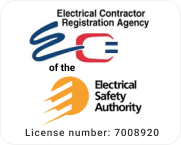Thinking of installing an EV charger? Consider these 4 things
Electric-powered vehicles have seen surge in popularity since their inception. What with manufacturers like Tesla bringing some much needed premium value to this class of vehicles, the perception of and demand for EVs has skyrocketed. Most mainstream manufacturers offer some level of electric drive in their vehicle.
With vanishing range anxiety concerns, plug-in electric-only and plug-in hybrid vehicles are becoming almost ubiquitous. It is but natural that consumers want to rely less on a public EV charger infrastructure. The better alternative: have your own EV charger and make use of the home’s electric infrastructure and benefit from lower-rate off-peak power prices.
Also, the Ontario Ministry of Transportation is offering incentives for various home EV charger projects. Read the latest on these.
Given than an EV charger is a complex electrical device – one capable of conducting large amounts of electrical current – this is one job best left to professional, licensed electricians.
Nevertheless, know what to look out for in your new EV charger:
- Amperage – EV charger ‘Level 1’, ‘Level 2’ or otherwise are easy marketing terms and a step towards standardization. However, behind each ‘level’ is a complex set of electricity requirements. Choose your EV charger capacity on the basis of how fast you want to be able to charge your car. Newer cars will be able to take advantage of faster EV chargers.
- Length of cable – An EV charger is a static device. This makes the length of the cable essential. Just long enough to charge your car in the garage; or something long enough to also charge it at the curb? An EV charger that can be unplugged and ported around is an option, but whether intended circuitry is designed for large and prolonged EV charging is one for the electrician to determine.
- Cost – EV chargers can vary widely in price, depending on the make and model of your vehicle, and the capacity of the charger itself. Installation charges too need to be factored in. Modifications to circuitry may be another factor to look out for. However, the Ministry of Transport does offer incentive schemes for various capacity of EV charger.
- Safety – As stated before, EV chargers are a source for large electric current. Safety is first and foremost, which is why a DIY installation is widely advised against. A licensed electrician in Toronto is your safest bet for installing an EV charger. Moreover, an EV charger can be safely installed by licensed electricians in Toronto, saving you the hassle and expense of having to hire a specialist group.


